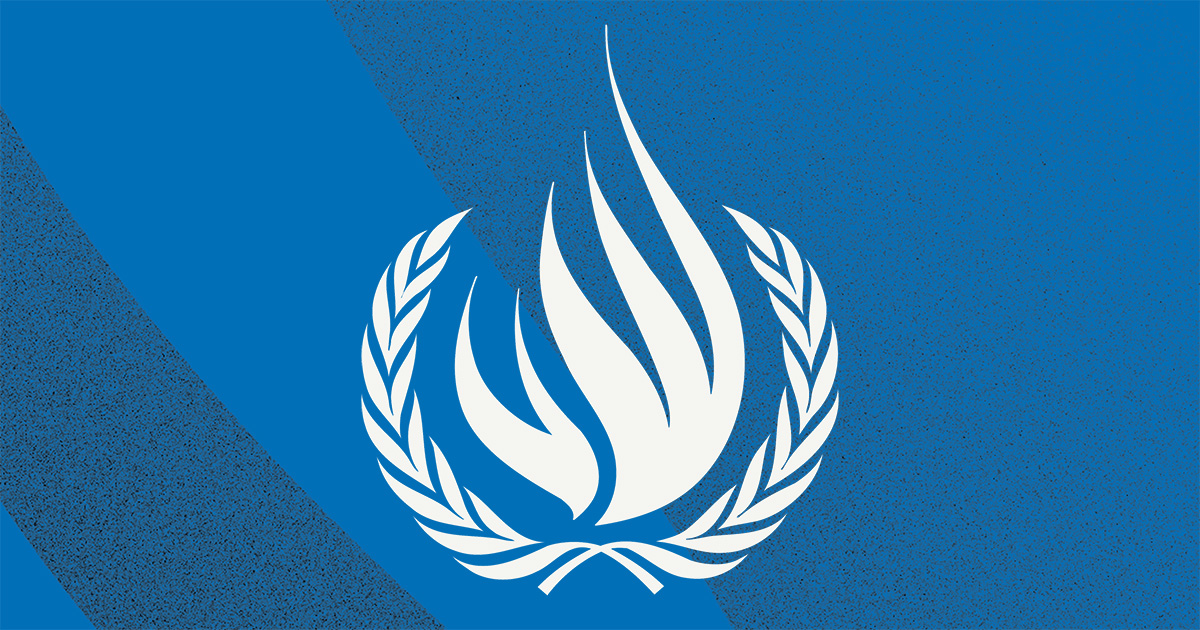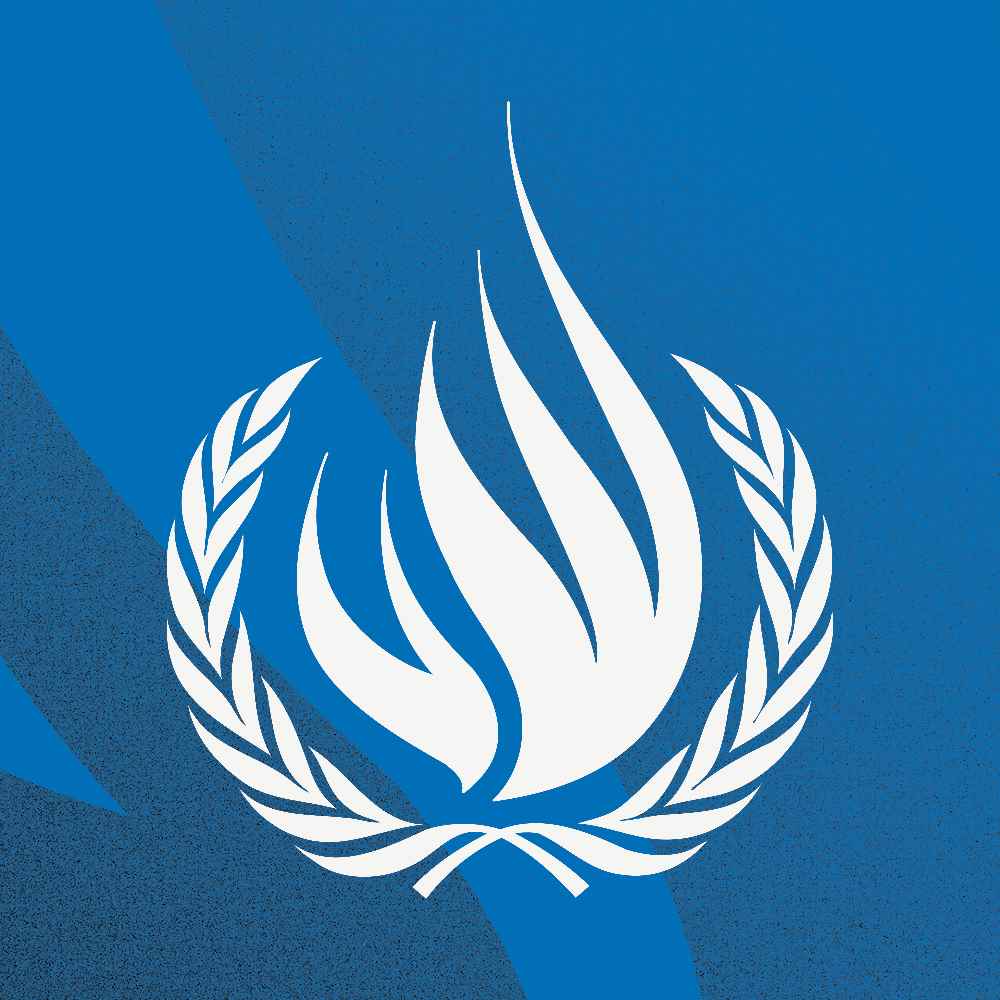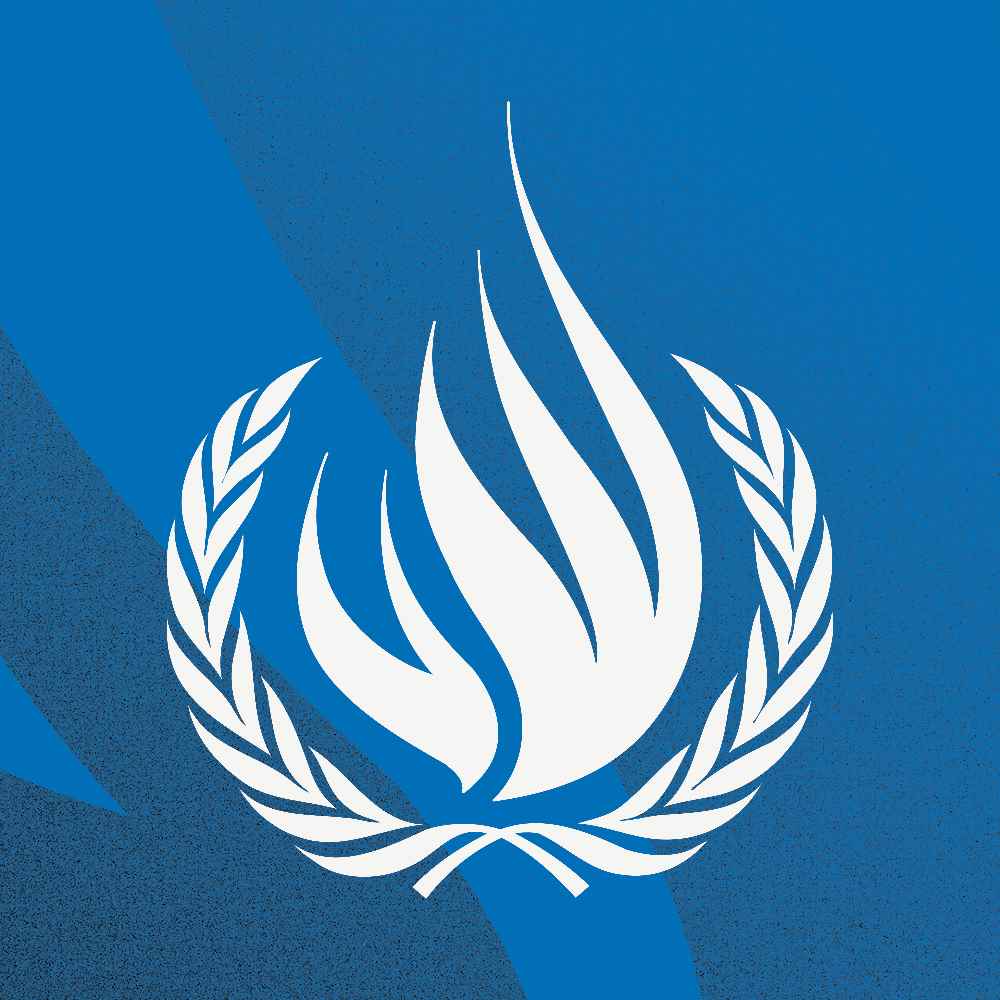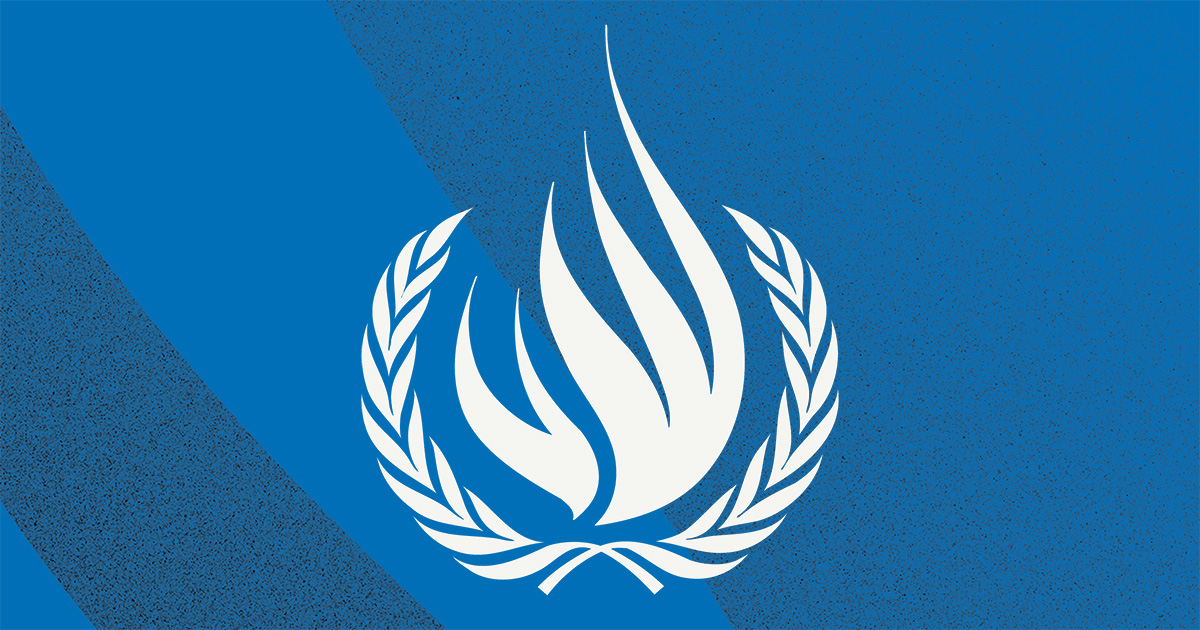
Tuesday, 31 October 2023 at 10:00,
at the United Nations General Assembly Hall, New York
Mr. President.
Excellencies,
Distinguished delegates,
I am honoured to present to you the annual report of the Human Rights Council.
Seventeen years ago, this august body acknowledged that the three pillars of the United Nations are interlinked and mutually reinforcing; reaffirmed that all human rights are universal, indivisible, interrelated, interdependent and mutually reinforcing; and established the Human Rights Council. Since then, a total of 123 UN Member States have served as Members of the Council. Let me congratulate the 14 States who were recently elected or re-elected as Members for the term 2024 to 2026. This includes, for the first time, the Dominican Republic.
This year, engagement with the Council continued to increase and the programme of work continued to grow. We heard a record number of dignitary addresses during the high-level segment of the 52nd session and held more than 14 weeks of regular-session meetings – the most since the Council’s creation. This demonstrates the importance States and civil society place on the Council to address the ever-increasing human rights issues around the world.
In line with GA resolution 65/281, the annual report of the Human Rights Council, with its addendum, covers the period from 8 October 2022 to 13 October 2023. It contains the Council’s resolutions, decisions, and President’s statements, adopted at sessions in 2023, as well as two special sessions and the organizational session that took place in the final quarter of 2022.
During the reporting period, the Council held 117 interactive dialogues, 19 panels, 18 general debates, one urgent debate and two special sessions. It considered over 230 reports by mandate holders, the United Nations Secretary-General, the High Commissioner for Human Rights, and in relation to the Universal Periodic Review. And it adopted a total of 154 resolutions, decisions and President’s statements. 76 per cent of these [117 texts] were adopted without a vote, demonstrating that member States are able to agree on the majority of human rights issues covered by the Council.
Mr. President,
The General Assembly mandated the Council to “respond promptly to human rights emergencies” and during the reporting time, the Council continued to deliver.
On 24 November 2022, the Council held its thirty-fifth special session on the deteriorating situation of human rights in the Islamic Republic of Iran, especially with respect to women and children. At the conclusion of the special session, the Council decided to establish a new fact-finding mission.
The fact-finding mission presented their first oral update to the Council at its 53rd session in July. It reported that the overall human rights situation in the country risks deteriorating further if no response is made to the concerns raised to date of alleged human rights violations. The fact-finding mission’s first full report will be presented to the Council next March.
Moreover, within a month of the outbreak of hostilities in the Sudan, the Council held its 36th special session on the human rights impact of the ongoing conflict in the Sudan on 11 May 2023.
At the end of the 54th session, the Council established a new fact-finding mission on the Sudan, mandated to investigate and establish the facts, circumstances and root causes of these alleged human rights violations and abuses. I have initiated the selection process for the members of the new fact-finding mission and hope to make the appointments shortly.
The Council also established new mandates this year under its technical cooperation and capacity-building agenda.
For example, in April the Council adopted resolution 52/39, which requested the Office of the High Commissioner for Human Rights to provide Haiti with technical assistance and support for its judiciary, security forces and prison administration.
Upon the Council’s request, the High Commissioner appointed an independent human rights expert on Haiti to monitor the development of the human rights situation there. The expert has already undertaken a country visit and participated in an interactive dialogue with the Council during its 54th session.
During its 53rd session in July, the Council requested the Office of the High Commissioner for Human Rights to assist Colombia with the implementation of the recommendations made by its national Commission for the Clarification of Truth, Coexistence and Non-Repetition.
Upon the Council’s request, the High Commissioner appointed an international human rights expert tasked with identifying and verifying the obstacles to the implementation of Colombia’s 2016 Peace Agreement. The expert already undertook a country visit in September.
And a few weeks ago, the Council adopted resolution 54/30, through which it requested the Office of the United Nations High Commissioner for Human Rights to provide technical assistance and capacity-building to national civilian authorities in penitentiary, security and justice matters in Honduras, in order to improve the situation of human rights.
Also during the 54th session, the Council welcomed the willingness of the High Commissioner for Human Rights to engage with the Caribbean Community to conclude an agreement with the Bahamas regarding the establishment of a regional office of the Office of the High Commissioner in that country. The purpose of such an office would be to undertake technical assistance and capacity-building activities and support efforts to promote, protect and fulfil human rights within the region by the Governments of the Caribbean Community.
For the four initiatives I just mentioned, the concerned countries worked with their peers to identify human rights issues and seek targeted international assistance from the Human Rights Council and the Office of the High Commissioner of Human Rights. It is a blueprint for cooperation and an encouraging demonstration of the Council’s ability to effectively deliver on its mandate.
Mr. President,
Some of the country-specific resolutions adopted by the Council this year included recommendations to the General Assembly.
For example, in its resolution 52/30, on the situation of human rights in the Syrian Arab Republic, the Council reaffirmed its recommendation that the General Assembly submit the reports of the Commission of Inquiry on the Syrian Arab Republic to the Security Council for appropriate action. The Council also recommended the continuation of the Commission’s briefings to members of the Security Council and the General Assembly.
Similarly, in its resolution 52/31, on the situation of human rights in Myanmar, the Council recommended that the General Assembly submit the reports of the High Commissioner for Human Rights and the Special Rapporteur on the situation of human rights in Myanmar, to the relevant United Nations bodies, including the Security Council, for their consideration and appropriate action, taking into account the relevant conclusions and recommendations therein.
Mr. President,
This year, the Human Rights Council has continued its significant work in progressing international human rights law by adopting several new resolutions that address a wide range of human rights issues.
For example, during its 53rd session, the Council held an urgent debate, to “discuss the alarming rise in premeditated and public acts of religious hatred as manifested by recurrent desecration of the Holy Quran in some European and other countries”. Following the debate, the Council adopted a new resolution on countering religious hatred constituting incitement to discrimination, hostility or violence.
A few weeks ago, at the conclusion of its 54th session, the Council adopted two new thematic resolutions: on the centrality of care and support from a human rights perspective; and, on ensuring quality education for peace and tolerance for every child. The Council also established a new Working Group on the rights of peasants and other people working in rural areas.
Additionally, the Council adopted resolution 54/18 on the right to development, which submits to the General Assembly the draft international covenant on the right to development for its “consideration, negotiation and subsequent adoption”.
Mr. President,
The Council’s work to promote and protect human rights requires a precise understanding of human rights and how they apply to particular domestic contexts. The thematic special procedures of the Human Rights Council provide this through their country visits, annual reports and communications.
As of today, 129 Member States and 1 non-member observer State have extended a standing invitation to thematic special procedures. I call on all States to cooperate with the special procedures and encourage those States who have not yet done so to consider extending a standing invitation to them.
Another integral part of the Council’s work is the Universal Periodic Review, widely known as the UPR. A quarter of all States have already undergone their fourth peer-review of their human rights obligations and commitments, and another 14 States will be reviewed over the next two weeks.
With a strong commitment to the equal treatment of all States, the Universal Periodic Review is valued as a process to initiate constructive dialogue and explore avenues for technical cooperation and partnerships between States and other stakeholders, including civil society.
During a high-level panel discussion in February, the Council reflected on the achievements of the Voluntary Fund for Participation in the UPR and the Voluntary Fund for Financial and Technical Assistance in the Implementation of the UPR, marking their 15th anniversary. These Funds support the participation of developing countries, particularly least developed countries and small island developing States, and the implementation of recommendations.
I am also pleased to share that the Voluntary Technical Assistance Trust Fund to support the participation of Least Developed Countries and Small Island Developing States in the work of the Council was able to facilitate 41 beneficiary delegates and fellows to participate in the Council’s regular sessions in 2023. This programme not only brings new voices to the Council, but it also helps to build human rights capacity within developing States. I thank the donor countries and hope to see more eligible countries use the Fund.
Mr. President,
Representatives of civil society and human rights defenders bring to the Council the voices and experiences of individuals and groups facing human rights challenges around the world.
In 2023, the Council heard over 2,400 oral interventions by non-governmental organizations. On average, over 350 NGOs participated in each regular session of the Council. The high level of participation by NGOs in its work not only makes the Council unique among UN bodies but gives it credibility to the people it serves.
It remains crucial that the Council is a safe space for civil society, one in which they can participate without fear of reprisal. Throughout the year, I have regularly encouraged all States to take the necessary measures to prevent acts of intimidation and reprisal against NGOs cooperating with the Human Rights Council. During my Presidency, I have also addressed and followed-up on the allegations of acts of reprisal and intimidation that have been brought to my attention.
I was pleased to see that the Council’s biennial resolution on reprisals was once again adopted without a vote at the Council’s 54th session.
Mr. President,
As we mark 75 years since the adoption of the Universal Declaration of Human Rights, the world’s human rights challenges remain vast. And we are witnessing more and more often the clear linkages between human rights, development and peace and security.
In order for us to effectively tackle the myriad of challenges we are all facing today, we must commit ourselves to taking a holistic approach to achieve the mandate entrusted to us. This means working together with all relevant actors and bodies to achieve more fair, just and peaceful societies.
All of us sitting in this room are well aware that there can be no peace without human rights and development. And human rights and development suffer greatly during times of violence and conflict. The United Nations has all the tools to address the crises that we are facing today. It was created for this purpose. But we need to use the tools in a more efficient way.
As I have just described to you in detail, the Human Rights Council is constantly producing a wealth of information and recommendations concerning human rights issues and situations around the world. This is an invaluable resource that should be utilized by other bodies, despite what pillar of the UN organization they fall under. Only by sharing information, working together and addressing challenges holistically will we be able to make real progress in fulfilling the mandate of this great organization.
.
Mr. President,
Let me conclude by thanking the General Assembly for its explicit support to the Human Rights Council.
I thank you.








